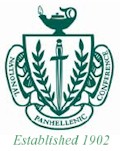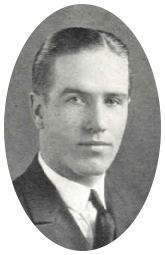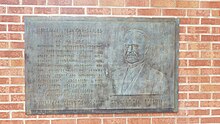
Ferris State University is a public university with its main campus in Big Rapids, Michigan. It was founded in 1884 as Big Rapids Industrial School by Woodbridge N. Ferris and became a public institution in 1950. The university also has a satellite campus in Grand Rapids, Michigan.
Sigma Alpha (ΣΑ) is a professional agricultural sorority.

In the United States, an honor society is an organization that recognizes individuals who excel in various domains such as academics, leadership, and other personal achievements, not all of which are based on ranking systems. These societies acknowledge excellence among peers in diverse fields and circumstances. The Order of the Arrow, for example, is the National Honor Society of the Boy Scouts of America. While the term commonly refers to scholastic honor societies, which primarily acknowledge students who excel academically or as leaders among their peers, it also applies to other types of societies.

The National Panhellenic Conference (NPC) is an umbrella organization for 26 national and international women's sororities throughout the United States and Canada. Panhellenic refers to the group's members being autonomous social Greek-letter societies of college women and alumnae.
While the traditional social fraternity is a well-established mainstay across the United States at institutions of higher learning, alternatives – in the form of social fraternities that require doctrinal and behavioral conformity to the Christian faith – developed in the early 20th century. They continue to grow in size and popularity.
James David Foley is an American computer scientist and computer graphics researcher. He is a Professor Emeritus and held the Stephen Fleming Chair in Telecommunications in the School of Interactive Computing at Georgia Institute of Technology. He was Interim Dean of Georgia Tech's College of Computing from 2008–2010. He is perhaps best known as the co-author of several widely used textbooks in the field of computer graphics, of which over 400,000 copies are in print and translated in ten languages. Foley most recently conducted research in instructional technologies and distance education.

The Professional Fraternity Association (PFA) is an American association of national, collegiate, professional fraternities and sororities that was formed in 1978. Since PFA groups are discipline-specific, members join while pursuing graduate degrees as well as undergraduate degrees. PFA groups seek to develop their members professionally in addition to the social development commonly associated with Panhellenic fraternities. Membership requirements of the PFA are broad enough to include groups that do not recruit new members from a single professional discipline. The PFA has welcomed service and honor fraternities as members; however, Greek letter honor societies more commonly belong to the Association of College Honor Societies.

George C. Griffin (1897–1990) served in various positions at his alma mater, the Georgia Institute of Technology, most notably as dean of men from 1946 to 1964. He was known variously as "the best friend of all Tech men" and "Mr. Georgia Tech."
The North American fraternity and sorority system began with students who wanted to meet secretly, usually for discussions and debates not thought appropriate by the faculty of their schools. Today they are used as social, professional, and honorary groups that promote varied combinations of community service, leadership, and academic achievement.

William Harry Vaughan, Jr. was a professor of ceramic engineering at the Georgia School of Technology and the founder and first director of what is now the Georgia Tech Research Institute.
Carolyn Winstead Meyers is the former president of Jackson State University. Meyers, a native of Newport News, Virginia, earned a bachelor's degree in mechanical engineering from Howard University. She earned a master's degree in mechanical engineering from the Georgia Tech in 1979, and a doctorate in chemical engineering from Georgia Tech in 1984. She completed post doctoral work at Harvard University.
Harold Alan Bunger was the head of Georgia Tech's chemistry department and the director of the Georgia Tech Research Institute from 1940 until his death in 1941.
Harry L. Baker Jr. was the president of the Georgia Tech Research Corporation from its creation in 1946 until his death in 1973.
Vernon D. Crawford was a professor, dean, and later interim president at the Georgia Institute of Technology from March 1969 to August 1969, and later chancellor of the Georgia Board of Regents from 1979 to 1985.

Delta Psi Kappa (ΔΨΚ) was an American professional fraternity in the disciplines of health and physical education, health sciences, and recreation that was established in 1916.








